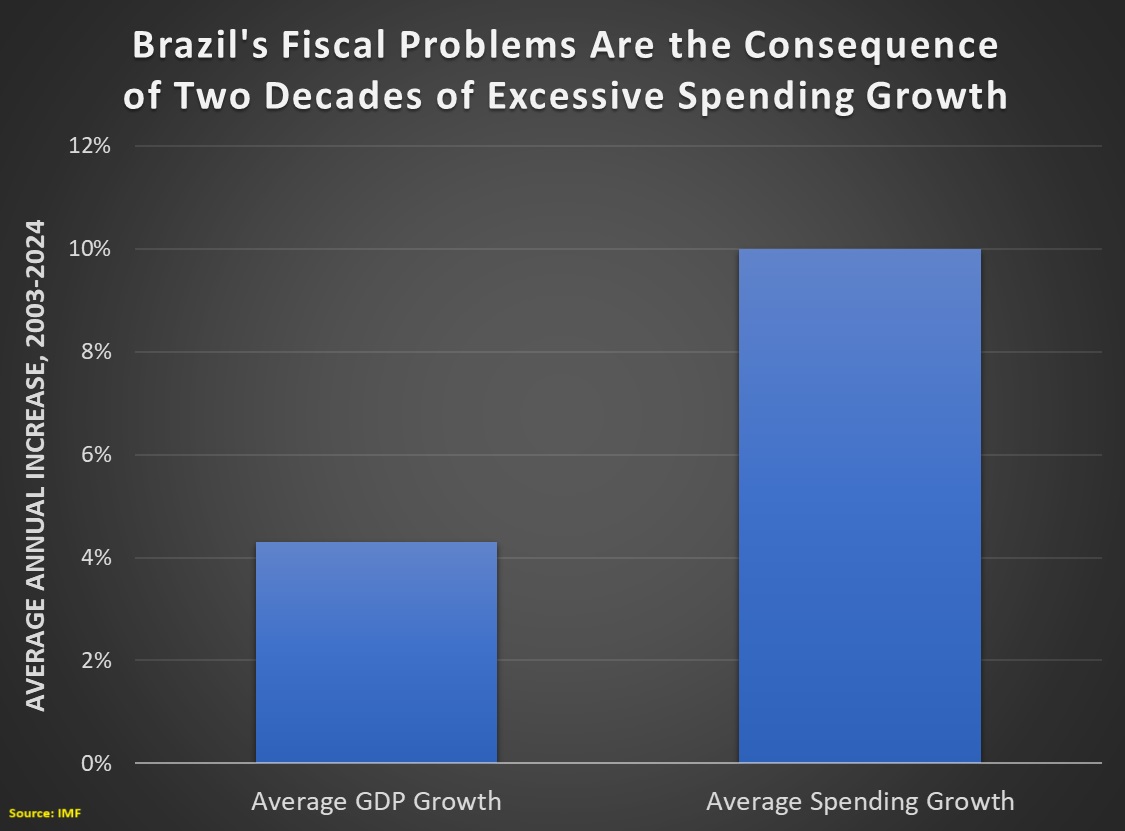September 14, 2024 by Dan Mitchell @ International Liberty
I wrote in 2013 that “for any fiscal policy question, spending restraint is the answer,” which is simply a restatement of my Golden Rule. I’m going to augment that by stating that “whenever there is a fiscal mess, excess spending growth is the cause.”
Today, let’s look at the case of Brazil. Based on data from the IMF’s world economic outlook database, here’s a comparison of economic growth and spending growth in Brazil. As you can see, the burden of government spending has grown more than twice as fast as the private sector.
During this two-decade period, the overall burden of government spending has jumped from 42 percent of GDP to 47 percent of GDP. And debt has increased as well.
I’m citing these disturbing and depressing numbers because Reuters has a report, authored by Bernardo Caram, about some unilateral tax hikes being planned by Brazil’s leftist government.
Brazil’s government is considering tax hikes that do not require congressional approval to balance this year’s budget, two finance ministry sources said on Friday, after officials acknowledged that new revenue measures could be implemented. Taxes in this category could include a levy on financial transactions (IOF), and import and export taxes, which can all be adjusted via presidential decree. On Thursday, the Treasury unveiled a plan for new revenue measures, if necessary, to ensure compliance with the year’s fiscal target of eliminating the primary deficit.
I’ll make a simple prediction. When the dust settles, the Brazilian people will be saddled with more taxes, more spending, and more debt. Just as has happened in Europe.
And I’ll close by reiterating a point I’ve made before, which is that it is impossible in the long run to have good tax policy if a jurisdiction does not have good spending policy.
That’s true internationally. That’s true domestically. And that’s true locally.

No comments:
Post a Comment